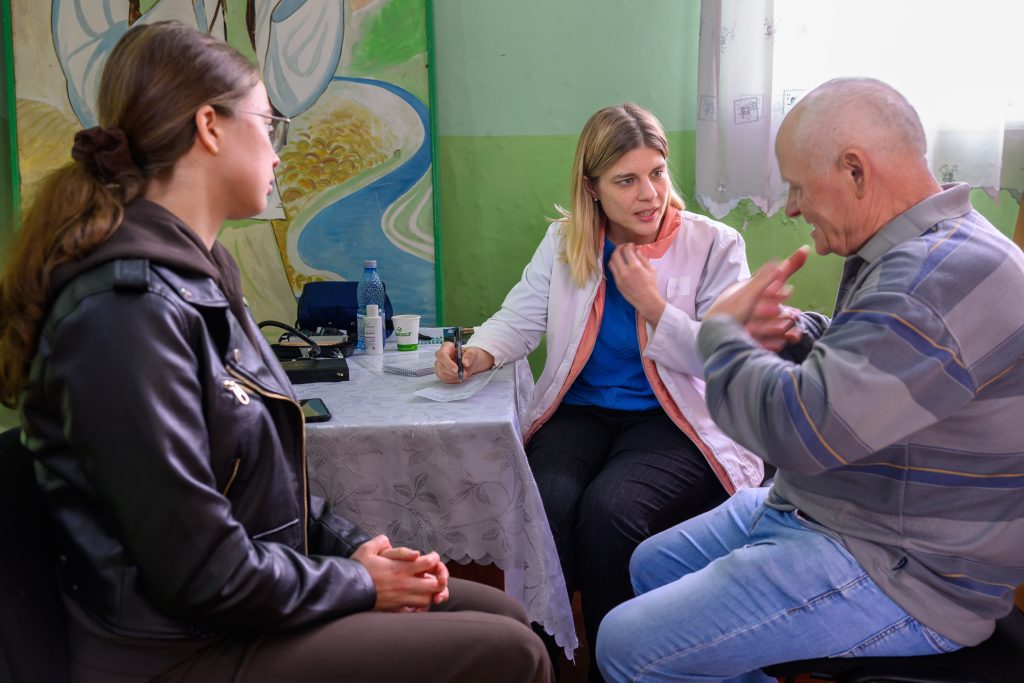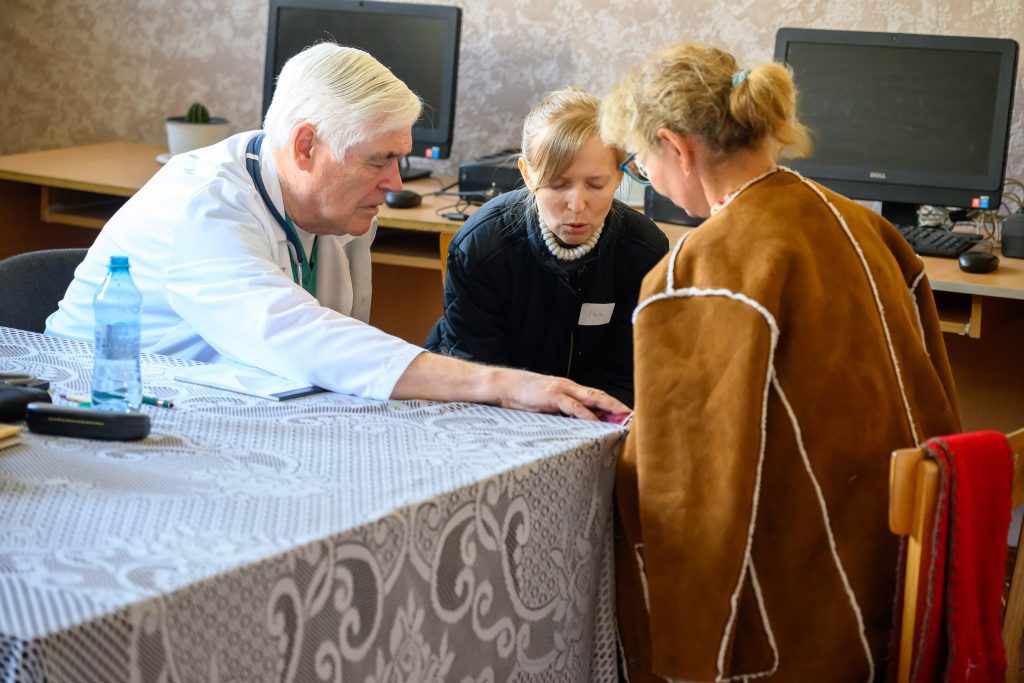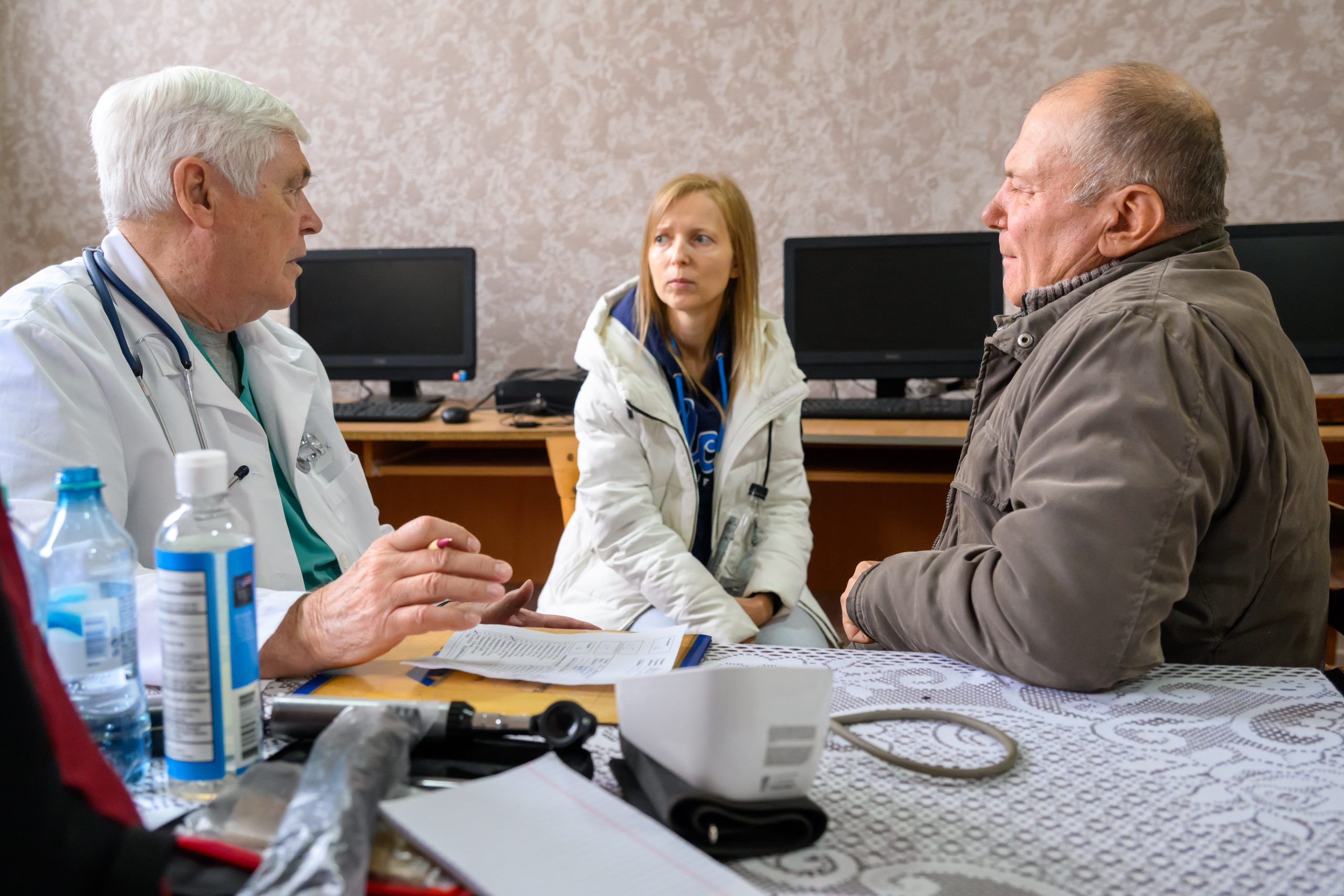Caption: Jack Sorg, MD, and his Romanian & Russian translator Irina Gancear, meet with a patient at the Casa de Cultură (Culture Center), where they set up a medical clinic in the town of Mărăndeni, Fălești District, Moldova. Jack is asking about the patient’s concerns and getting their history to help them with their medical concerns.
In our fast-paced world, it’s easy to get caught up in our lives, focusing on our needs and wants. We often forget that every person we encounter is a unique individual with their desires, struggles, and experiences. This is why it is crucial to emphasize the significance of caring for the whole person in our relationships, as demonstrated through the experiences of medical professionals and the pitfalls of some faith communities.
During my coverage of medical personnel running urgent care clinics in Moldova, I was reminded of the profound impact that genuine care and understanding can have on people. These dedicated professionals not only treat physical ailments but also offer a listening ear and emotional support. It was a stark contrast to many other interactions in our lives, where transactions and self-interest often take precedence.

One area where the importance of caring for the whole person is sometimes overlooked is within the evangelical community. It’s disheartening to see some individuals treating relationships as a means to an end, using them to achieve their personal goals or convert others to their faith. Questions like, “Am I just another notch on your belt of successes?” or “If I reject your Jesus, will you still be my friend?” highlight this issue.
Church planters who aim to spread their faith globally often encounter this dilemma. Many people don’t readily perceive their need for spiritual guidance, making it challenging to engage them in conversations about faith. Jack Sorg, MD, a surgeon, recognized the importance of a more holistic approach. He understood that people worldwide needed medical care and that his medical skills could serve as a bridge to connect with them.

However, Jack Sorg went a step further. He saw each patient as a unique individual, not just a medical case. He genuinely cared about their well-being and wanted to help the whole person, recognizing that physical ailments were often intertwined with emotional, mental, and spiritual needs. While treating patients, he would inquire if they were open to hearing about his faith. If they declined, he respected their wishes, offering to pray for them after providing free medical care.
For those open to discussing faith, he would collaborate with church planters to open doors for spiritual conversations. Jack’s approach was a testament to the idea that genuine caring and understanding should extend beyond a singular goal, such as sharing one’s faith.
This concept aligns with the teachings of Jesus, who emphasized loving one another, helping those in need, and letting our light shine through good deeds. In Matthew 22:39, Jesus instructs us to “love each other as I have loved you.” Additionally, in Matthew 5:42, Jesus advises us to “give to the one who asks you and do not turn away from the one who wants to borrow from you.” These teachings stress the importance of selfless giving and caring for the needs of others.
Moreover, in Galatians 6:2, we are reminded to “carry each other’s burdens, and in this way, you will fulfill the law of Christ.” This verse underscores the significance of being there for one another in times of trouble and assisting others in their journey through life.

Caring for the whole person in relationships is a fundamental aspect of being human. It means valuing individuals not just for what they can offer us but for who they are. Whether it’s through medical care, friendship, or spiritual guidance, we should strive to understand and support others in their entirety. By doing so, we fulfill the higher calling of love, compassion, and selflessness, following the example set by Jesus and those like Jack Sorg, who recognize that people deserve to be cared for in their entirety.

